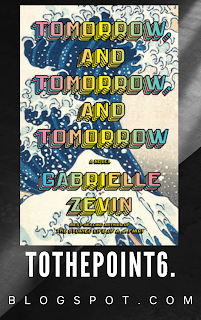"Tomorrow and tomorrow and tomorrow" a novel(book) by Gabrielle zevin summary,overview,review and keynotes
.png)
Quick summary of "Tomorrow and Tomorrow and Tomorrow" This is about gaming and its effects on our lives. It also explains how to find the right people during difficult times. Gaming can help us navigate tough times. Gaming is infinite, with birth and death. So, the title of the book is "Tomorrow and Tomorrow and Tomorrow." You correct your mistakes and change your strategy in rebirth. You enter a redemption mood by learning from your mistakes. Next time, you choose things you hadn't chosen in a previous life. You improve your strategies and IQ. You learn from others' strategies in online games. If you want to turn your ex-lover into a friend, continue loving them forever. Without love, there can still be friendship, as love preferences sometimes change. Nothing is constant: not your lifestyle, love, or gameplay. There's always a new and special method for triumph in games. You can always find an ideal, perfect, and different way to win a game. You create...


